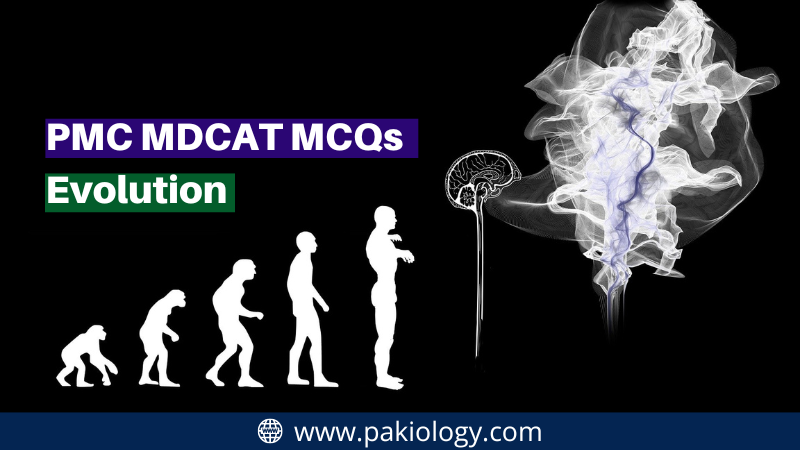Because evolution relates to all areas of biology, it’s incredibly important for medical professionals to have a firm grasp of this concept. You can use the following MCQs on evolution to test your knowledge and ensure you understand why the correct answer and incorrect answers were incorrect. With regular practice, you’ll soon have your understanding of evolution totally dialled in!
Concepts of Evolution
1. The theory of evolution is the idea that all life on earth has descended from a common ancestor, and that the descendants have changed over time to adapt to different environmental conditions.
2. The term evolution is often used to refer to the process by which organisms change through generation and descent over time, as well as its resulting changes in their genetic material (DNA) or morphology (physical structure).
3. Genetic variation also occurs among individuals of a population due to mutation, recombination and gene flow. When an individual organism produces gametes at sexual reproduction, they carry only one of two copies of each chromosome so they can combine with those of another individual to form new combinations with more variation than would be possible if the chromosomes were each present twice.
Natural selection
Genetic variation is important because it ensures that there will be enough different combinations of alleles so that natural selection has something new to act on. The variations may be small or large, but they must confer some survival advantage for the organism in order for natural selection to favour them. Mutations are random events and are not influenced by selective pressures; however, mutations can provide the raw material for evolution if they result in a genetic change that conveys an advantage.
Darwinism
In 1859, Charles Darwin published his theory of evolution by natural selection. His book On the Origin of Species is one of the most influential scientific books ever written. The theory posits that all life evolved over time from a single-celled organism called an ancestor through a series of natural selection processes.
Charles Darwin was born in England in 1809 and became interested in geology after attending Cambridge University to study medicine. He took a five-year trip aboard the HMS Beagle as part of its expedition around South America, which helped him formulate some ideas about evolution and adaptation. He spent 20 years compiling evidence for his theories before publishing them in 1859.
Convergent evolution
While convergent evolution is a process that makes organisms’ appearances more similar, it does not happen by chance. Convergent evolution is the result of natural selection and genetic drift. Since organisms that share a common environment are more likely to face similar problems, such as finding food or defending themselves against predators, they will often evolve in a way that helps them survive in their environment.
Epigenetics
The term epigenetics refers to heritable changes in gene expression that occur without changing the DNA sequence. These changes may result from chemical modifications (e.g., methylation) of DNA or histones, or they may alter the activity of non-coding RNAs. Epigenetic mechanisms play a role in normal cellular differentiation and development and have been implicated in human disease.
Vestigiality
Vestigial organs are the remnants of a body part that once served an evolutionary purpose but now remains as a remnant. Examples include the male nipple and the appendix.
The human coccyx is another example of vestigiality, as it is the last bone in the spinal column. You can tell how far back in our evolutionary history the human coccyx appeared because you can find a corresponding form for it in other mammals. On some mammal species such as rabbits, guinea pigs, and kangaroos, there is still a tailbone (called the coccygeal process) that bears no resemblance to what we see in humans.
MCQs On Evolution
Here are the MCQs from the PMC MDCAT on Evolution.
- Chapter: Evolution
- Total MCQs: 87
Time’s Up
Total Questions:
Attempt:
Correct:
Wrong:
Percentage:
YOU MIGHT LIKE
Check MDCAT Test Result By Name And Roll Number
It doesn't matter how you score, just as long as you are there. And it's not that important if your friends scored...
PMC MDCAT MCQs On Gases
In this post, we have covered the PMC MCQs from the chemistry chapter Gases. Here you will get all types of MCQs with...
PMC MDCAT MCQs On Atomic Structure
An atom is the smallest particle of an element that still has all of its characteristic properties, such as charge,...
PMC MDCAT MCQs On Fundamental Concepts Of Chemistry
The MDCAT is the Medical College Admission Test, and it’s used to determine whether or not an applicant will be...



0 Comments